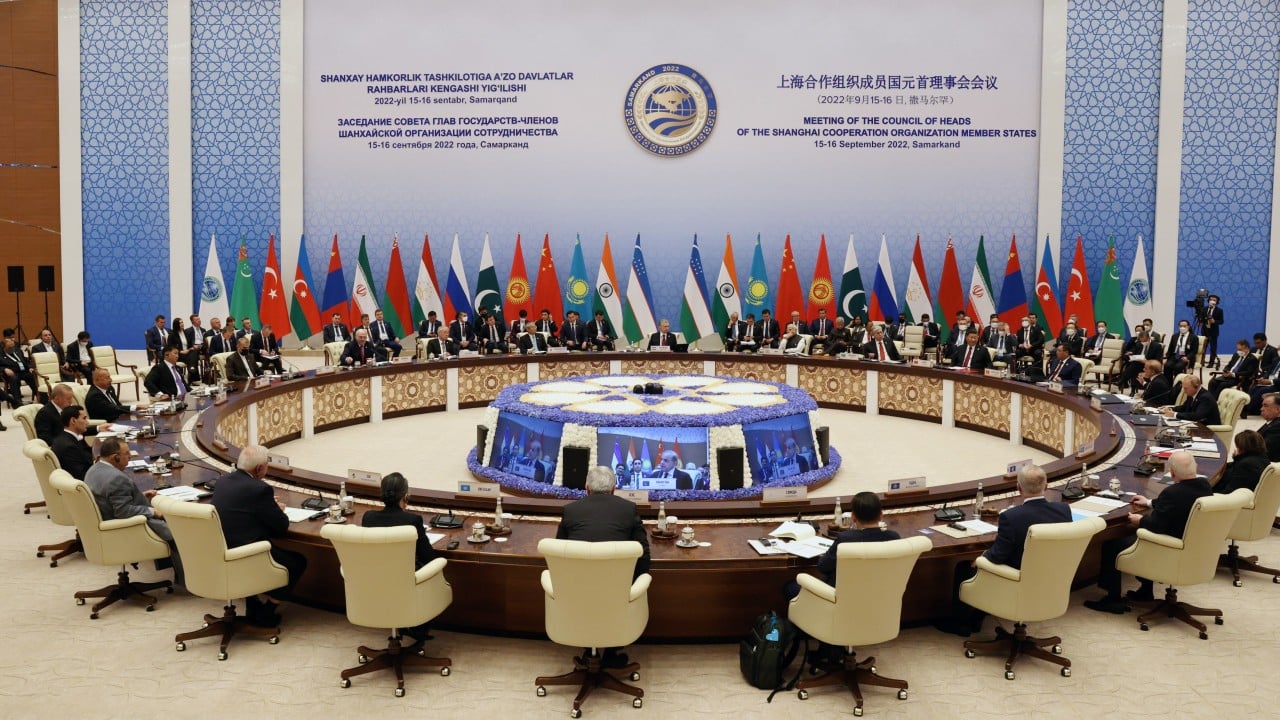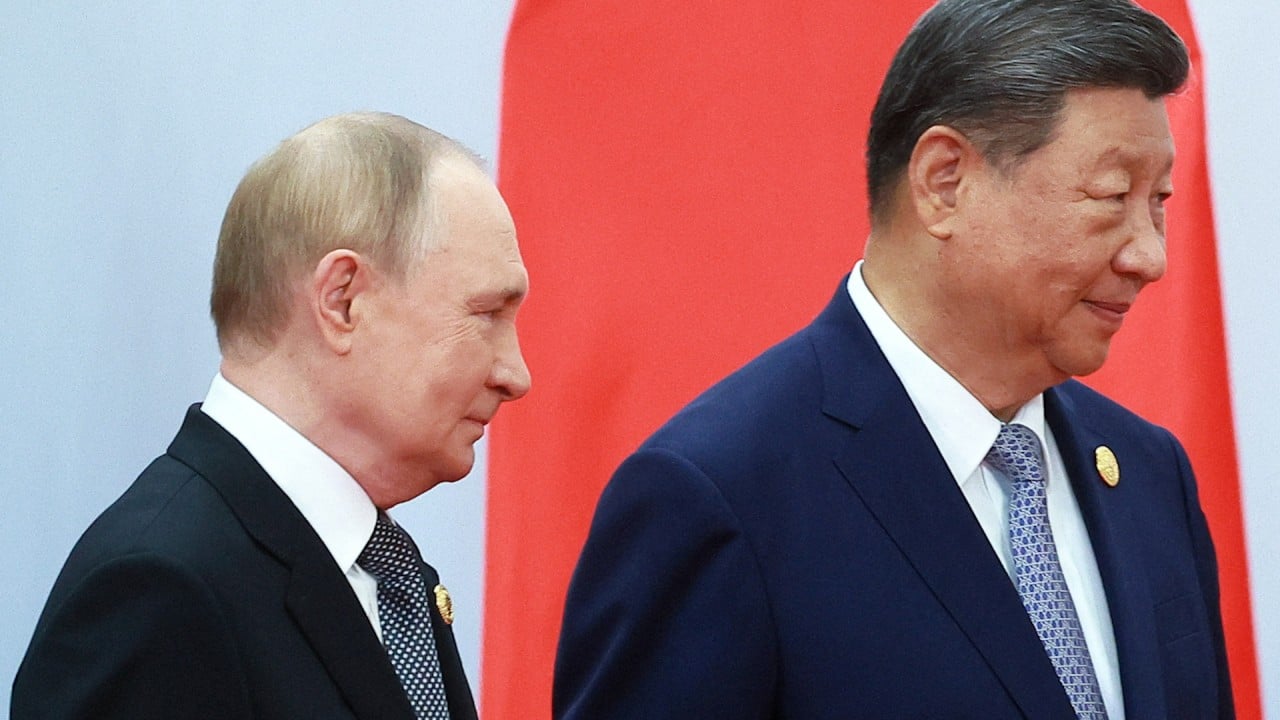The Shanghai Cooperation Organisation (SCO) was founded in 2001 as a Eurasian security bloc by China, Russia and the four Central Asian nations of Kazakhstan, Kyrgyzstan, Tajikistan and Uzbekistan. It now has 10 full member states, with the addition of Belarus, India, Iran and Pakistan in the past decade.
Advertisement
In all, the bloc now brings together 26 countries across Asia, Europe and Africa, including observer states Mongolia and Afghanistan and 14 dialogue partners: Sri Lanka, Turkey, Cambodia, Azerbaijan, Nepal, Armenia, Egypt, Qatar, Saudi Arabia, Bahrain, Kuwait, Myanmar, the Maldives and the United Arab Emirates.
Myanmar and Turkey are among nations seeking full membership.
Here is how the bloc has evolved from a small consultative group of five states focused on regional border security – known as the “Shanghai Five” – into a comprehensive Eurasian organisation addressing not only security but also economic, trade and diplomatic challenges.
1996: The “Shanghai Five” bloc is set up after the dissolution of the Soviet Union, with China, Russia and three newly independent Central Asian states: Kazakhstan, Kyrgyzstan and Tajikistan.
2001: The “Shanghai Five” is renamed the Shanghai Cooperation Organisation in June 2001, after Uzbekistan joins the grouping.
Advertisement
2002: SCO Charter is signed at the St Petersburg summit and takes effect in September 2003. It is a fundamental constituent document stipulating the goals, principles, structure and major areas of activities of the organisation.
2003: SCO member states sign a 20-year programme of multilateral trade and economic cooperation, including the establishment of a free-trade zone.


